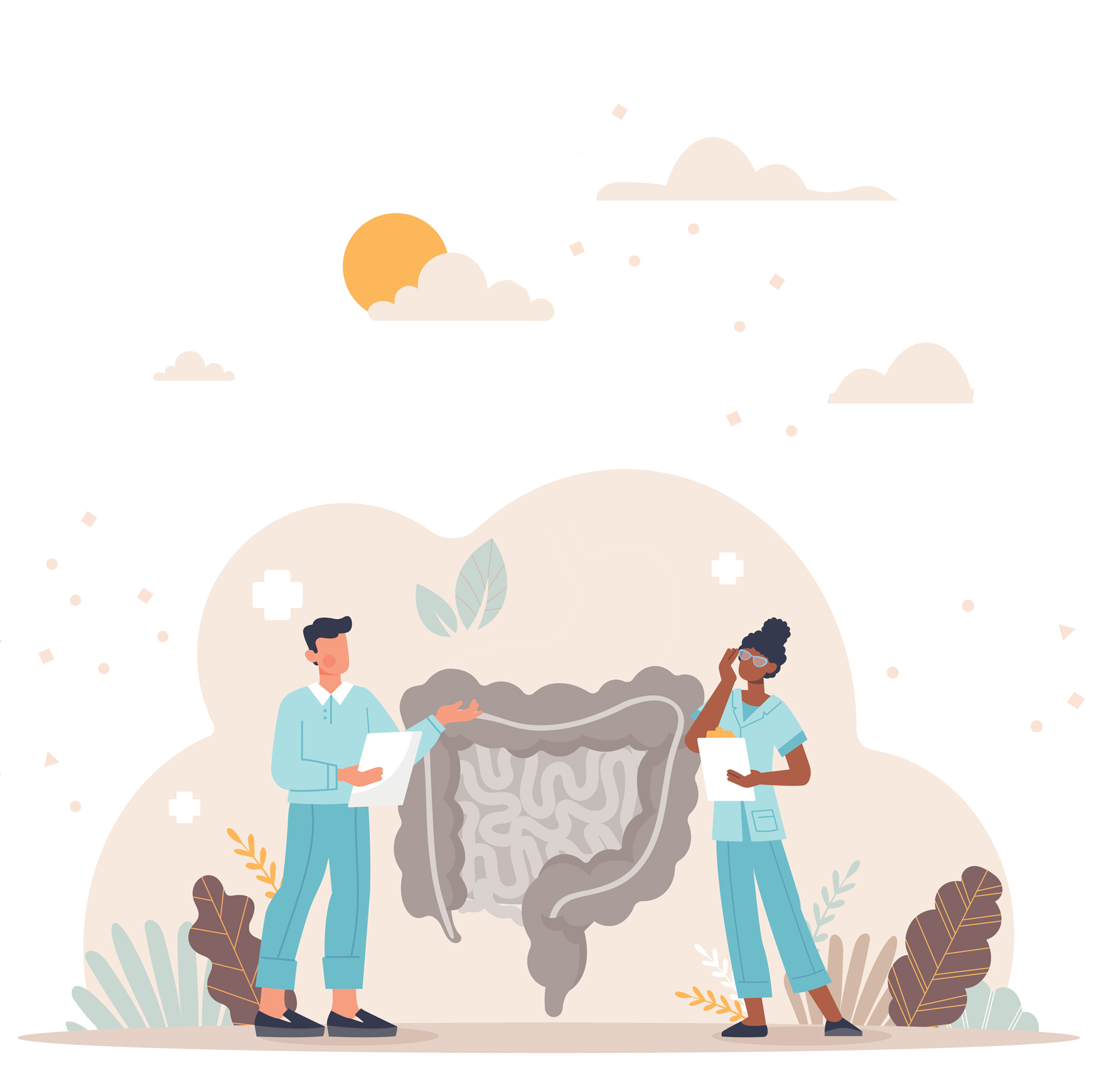
Research
Our mission is to fix the broken healthcare system.
We are accelerating the research and development of new Precision Health technologies.

Research at a Glance
- 856publications
- 192,215citations
- 30,419media mentions
Our Approach
Much of our research now focuses on the exploratory analysis of Big Data to create breakthroughs in our understanding of human biology and medicine.
Multi-Omic Profiling
Omics is a new term referring to distinct fields of human biology. Each “ome” represents a different area of interest. Our lab has invented many “Omics” profiling technologies. We currently profile 16 different “Omes.”
Longitudinal Baseline Profiling
By profiling healthy people over time, we can identify early signatures of disease, keeping people healthy instead of treating them when they get sick.
Enroll today in one of our numerous active research studies
Your participation supports groundbreaking research! We are always looking for people like you to participate in one or more of our numerous research studies. Your engagement directly leads to progress in science which can eventually improve healthcare and save lives.
COVID-19 Wearable Study
Many COVID-19 cases are spread asymptomatically. With limited test kits and slow results turnaround, we are using the MyPHD app to find out if information from wearable devices, like Fitbit and Apple Watch, can be used to track infectious diseases like COVID-19, including Long COVID. This study:
- builds on previous work detecting the infectious disease before symptoms
- is validating a free, open-source algorithm as a gift to the world
- ensures your data security and privacy

Crohn's Exposome Study
This study investigates the role of human exposome in crohn’s disease using wearable sensors and multiomics profiling.
Learn More

JPS Study
We are investigating the Biological and Genetic Drivers of Juvenile Polyposis Syndrome. Snyder Lab researchers hope that learning more about this information can improve early detection, risk assessment, and potential future treatments for JPS. We also aim to create a biobank and research registry to support ongoing research and connect families affected by this condition.
The purpose of this study is to better understand:
- the biology and genetics of JPS
- why individuals with Juvenile Polyposis syndrome (JPS) develop polyps in the gastrointestinal tract, particularly those who do not have a known genetic mutation.

Exposures Study
Seeking to identify and evaluate the environmental and workplace exposures that may impact human health, using comprehensive exposome analysis methods and metabolomics data.

Personal Glucose Response
We’re doing a study at Stanford to understand how different foods or supplements can help keep blood sugar levels steady after eating.
You’ll eat a specific carbohydrate-rich breakfast on several days, each time trying a different “mitigator” — that is, a food or supplement that might help reduce the rise in blood sugar after a meal, like vinegar, fiber, or specific types of protein.

Genetic Variation Study
Researching the role of genetic variation between human sperm and somatic (body) cells.

Crash Course
The Crash Course study aims to understand and predict relapses, flares, and crashes in chronic disease.
We are looking for participants who are:
• 18 years old or older
• experience relapse episodes persisting at least 24 hours
Reach out to learn more and learn if you are eligible.

Projects Overview
We collaborate with labs, hospitals, and companies to take a holistic look at a person’s health, including every aspect of one’s biology: genome, epigenome, transcriptome, proteome, metabolome, lipidome, microbiome, biosensors, imaging, psychome, social graph, exposome.


Integrated Personalized ‘Omics Profiling (IPOP)
Besides standard clinical tests, we are measuring nearly all of the molecules in the blood, urine, stool, saliva, as well as heart rate, sleep, and airborne exposures.


Personalized Health Dashboard
This app allows users to store and analyze petabytes of data from genomics, to metabolomics, to wearables sensors, imaging, and Electronic Medical Records.


Exposome Research
Besides standard clinical tests, we are measuring nearly all of the molecules in the blood, urine, stool, saliva, as well as heart rate, sleep, and airborne exposures.

The Longevity and Thriving Initiative
Our goal is to develop targeted interventions to slow biological age, restore youthful biological signatures, and prolong health and thriving.

Personalized Nutrition Initiative
We advocate for continuous monitoring of key chemical changes over a person’s lifetime to predict high-risk diseases, and take a preventative measure to intervene with nutritional adjustments.

Lifestyle Initiative
We are measuring biochemical changes across diverse systems all at once to understand interindividual differences and personal health trajectories during lifestyle activities, including exercise.

Children’s Metabolic Health Center
We are conducting IPOP on every baby born at the Stanford Hospital to detect anomalies and risk factors that may occur over the first few years of life.

Bioinformatics as a Service (BaaS)
Genetics Bioinformatics Service Center (GBSC) is set up to facilitate massive scale genomics at Stanford and supports omics, microbiome, sensor, and phenotypic data types.

Mental Health Research Initiative
We are working on novel approaches to mental health by creating objective, biological diagnostics for mental health conditions as well as validating new hyper-effective, scalable, and affordable treatments for stress, anxiety, and depression.
Learn More
Women’s Health Initiative
With support from the Bill & Melinda Gates Foundation, we are profiling pregnant mothers to provide early, nutrition-based interventions that improve the health of babies. We hope to extend this work to women’s health more broadly.
Publications
The Latest

Nature Biomedical Engineering 2023
Multi-omics microsampling for the profiling of lifestyle-associated changes in health
With this technique, the blood can be collected at home and mailed to a lab. As Dr. Michael Snyder said, “We can follow your metabolic markers, your immune markers, even some neurological markers that can give insights into your mental health.”

Neuron 2022
Genome-wide identification of the genetic basis of amyotrophic lateral sclerosis
In this study, we developed a machine learning approach called RefMap, which integrates functional genomics with genome-wide association data for gene discovery. We looked for mutations only in genes that support motor neuron function in ALS patients.

Nature 2022
Recurrent repeat expansions in human cancer genomes
We used a new algorithm to analyze more than 2,000 human cancer genomes to first identify long, repetitive DNA sequences, which may have a role in gene regulation in seven types of cancer. We then created a molecule that targeted them in kidney cancer cells.

Cell 2020
Molecular Choreography of Acute Exercise
Our findings revealed the molecular choreography of biological processes during exercise. Most of these processes were weakened in insulin resistant participants. We also discovered biological pathways involved in exercise capacity and developed prediction models revealing potential resting blood-based biomarkers of fitness. In other words, we demonstrated you can reduce the VO2 Max treadmill test into a simple blood test

Nature Genetics 2020
Systematic identification of silencers in human cells
Silencers in human genome are regions that repress gene expression. To date, most studies have focused on regions that enhance gene expression, but silencers have not been systematically studied.
We have developed a system that identifies silencers in a genome-wide fashion. We found that tissue-specific silencing is widespread throughout the human genome and probably contributes substantially to the regulation of gene expression and human biology.


Cell 2020
Metabolic Dynamics and Prediction of Gestational Age and Time to Delivery in Pregnant Women
Metabolism during pregnancy is a dynamic and precisely programmed process, the failure of which can bring devastating consequences to the mother and fetus. To define a high-resolution temporal profile of metabo- lites during healthy pregnancy, we analyzed the untargeted metabolome of 784 weekly blood samples from 30 pregnant women.
The study represents a weekly characterization of the human pregnancy metabolome, providing a high-resolution landscape for understanding pregnancy with potential clinical utilities.

Nature 2019
A longitudinal big data approach for precision health
“What this paper really shows is that if doctors and scientists do more advanced profiling reasonably frequently, they’ll discover clinically actionable information for patient health at a broader scale than has ever been shown before,” Dr. Michael Snyder said.
Utilizing a multi-Omics, longitudinal baseline profiling approach on ~100 healthy individuals, our lab uncovered more than 67 clinically actionable health discoveries that ranged from high blood pressure, arrhythmias, cardiomyopathy, and early-stage cancer detection, among others.
Science 2019
The NASA Twins Study: A multidimensional analysis of a year-long human spaceflight
This NASA-led study compared the biology of twin astronauts Scott and Mark Kelly to determine the range of immune and molecular stresses outer-space imposes on the human body. Our lab led an effort to characterize the twins at the molecular level, focusing on protein production, immune response, metabolism and the efficacy of vaccines in space.


Cell 2018
Dynamic Human Environmental Exposome Revealed by Longitudinal Personal Monitoring
In this study, we invent a new technology for monitoring personal airborne exposures — the “Exposome”, explained in this cool video.
Environmental exposures are clearly related to human health but their precise relationship is poorly understood. In this study, we developed a sensitive method to monitor biological and chemical exposures — the “Exposome.” We found that personal Exposomes are highly unique and constructed from a dynamic network of interacting ecosystems including other humans, flora, pets, and bugs. These networks can have significant consequences on human health.
PLOS Biology 2017
Digital Health: Tracking Physiomes and Activity Using Wearable Biosensors Reveals Useful Health-Related Information
In this article, we published the first algorithm (Change of Heart) that could detect infectious disease days before symptoms emerge.
By recording over 250,000 daily measurements for up to 43 individuals, we found that commercially available wearable sensors (monitoring heart rate, activity, skin temperature, and other variables) can reveal meaningful health insights, including the pre-symptomatic onset of infection, inflammation, and even insulin resistance.

Nature 2020
Personal aging markers and ageotypes revealed by deep longitudinal profiling
What happens to an individual as they age? This is the first scientific publication to demonstrate personalized aging biomarkers.
Our team profiled a group of 43 healthy men and women between the ages of 34 and 68, using blood, stool, and other biological samples. The study tracked levels of certain microbes and biological molecules over two years. We determined that people generally age along certain biological pathways in the body: metabolic, immune, hepatic (liver), and nephrotic (kidney).

PLOS Biology 2018
Glucotypes reveal new patterns of glucose dysregulation
Often people who are prediabetic have no idea they’re prediabetic.
In fact, this is the case about 90 percent of the time, but about 70% of people who are prediabetic will eventually develop the disease. We demonstrated continuous glucose monitoring will be important in providing the right information earlier on so that people can make changes to their diet should they need to.

Nature 2012
An integrated encyclopedia of DNA elements in the human genome
The human genome encodes the blueprint of life, but the function of the vast majority of its nearly three billion bases is unknown. The Encyclopedia of DNA Elements (ENCODE) project has systematically mapped regions of transcription, transcription factor association, chromatin structure, and histone modification.

GET IN TOUCH
The healthcare innovation lab funds highly translational work at Stanford in a non-linear fashion—allowing for high risk, high impact projects and fast iteration to bring them to clinic and market. Your gift will fund the most promising projects and allow for the creativity and flexibility that is needed to drive paradigm shifting translational research and development.
Contact Us






